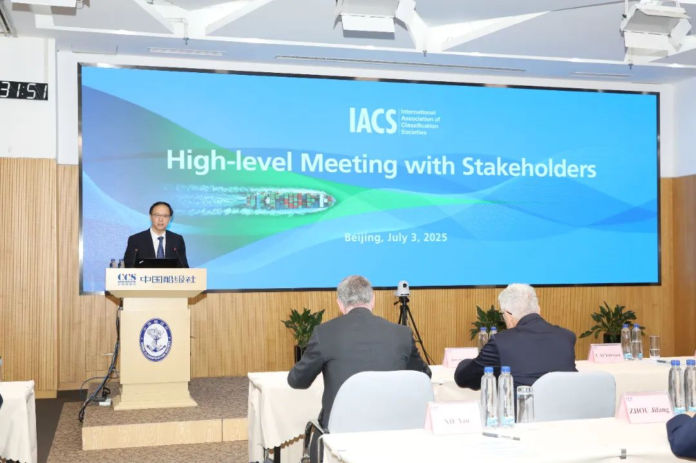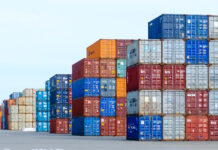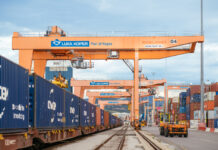
In a pivotal gathering held on the sidelines of the 91st Council meeting of the International Association of Classification Societies, the China Classification Society and IACS co-hosted a high-level stakeholder meeting at CCS Headquarters in Beijing.
Presided over by CCS Senior Vice President Mr. Cai Yanxian, the summit brought together more than 80 representatives from international maritime organizations, government bodies, classification societies, shipowners, and shipyards to address the pressing twin transitions facing the shipping industry: decarbonization and digitalization.
Themed “Navigating Decarbonization and Digitalization in the Maritime Industry,” the meeting fostered in-depth dialogue on regulatory frameworks, technological innovations, and collaborative pathways to transform global shipping.
Keynote addresses were delivered by Mr. Sveinung Oftedal, Chair of the IMO Intersessional Working Group on GHG Reduction; Mr. Cheah Aun Aun, Director (Shipping) and Director of Marine at Singapore’s Maritime and Port Authority (MPA); and Mr. Wang Dongbo, Deputy Secretary-General of the China Association of the National Shipbuilding Industry (CANSI).
Mr. Oftedal detailed the outcomes of MEPC 83, outlining 2025’s work plan, which includes strengthening Carbon Intensity Indicators, advancing the IMO’s Net-Zero Framework, and implementing GHG Fuel Intensity standards.
Mr. Cheah emphasized the importance of a people-centered regulatory design in managing the green and digital transition, citing Singapore’s leadership in methanol and ammonia bunkering, seafarer training, and technological integration including the use of drones for port operations.
Meanwhile, Mr. Wang outlined China’s three-pronged strategy for transformation: building a greener and more digital shipbuilding industry, advancing the construction of smart and sustainable vessels, and enhancing the availability of green fuels and clean energy. He reaffirmed CANSI’s commitment to working closely with shipowners, classification societies, and global stakeholders.
The panel discussion, moderated by IACS Secretary General Mr. Robert Ashdown, featured dynamic exchanges on safety, regulation, and innovation. Mr. Roberto Cazzulo, IACS Council Chair, outlined the association’s strategic vision and ongoing contributions to the IMO, before joining speakers in discussing challenges surrounding autonomous shipping, regulatory harmonization, and human-centered design.
A key technical segment addressed the proposed Common Structural Rules revisions. Presentations and discussions led by IACS Hull Panel Chair Mr. Cho Hyungmin and representatives from the Active Shipbuilding Experts’ Federation explored the implications of CSR updates on vessel design, construction safety, and alternative fuel integration.
In his closing remarks, Mr. Cai Yanxian acknowledged the complexity of the industry’s transformation, but expressed strong optimism.
Mr. Cai reaffirmed CCS’s commitment alongside IACS member societies to advancing technological readiness, supporting global regulatory efforts, and contributing to a cleaner, safer, and more efficient maritime industry.




